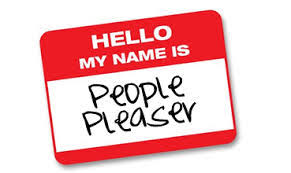
Mate Poaching | 3 Reasons Why Women Do It
Most women would probably admit that at some point in their life, they have been attracted to someone who is already married, but they would never think of trying to do anything to lure the man away from his wife. However, for some women, they only seek out married and committed men to have a relationship with.
 Mate Poaching is a term coined by David Buss several years ago in his book entitled “Evolution of Desire” that defines the behavior of men and women who purposely seek out people in a committed relationship. A study published in the Journal of Experimental Social Psychology by Oklahoma State University found that of the single women in the study who were told their “match” was currently in a romantic relationship, 90% said they would pursue the man knowing he was not single. Dionne Mahoffey wrote a book on the subject entitled, “Girl, Leave Her Man Alone”. Websites like ashleymadison.com actually promote married people having affairs.
Mate Poaching is a term coined by David Buss several years ago in his book entitled “Evolution of Desire” that defines the behavior of men and women who purposely seek out people in a committed relationship. A study published in the Journal of Experimental Social Psychology by Oklahoma State University found that of the single women in the study who were told their “match” was currently in a romantic relationship, 90% said they would pursue the man knowing he was not single. Dionne Mahoffey wrote a book on the subject entitled, “Girl, Leave Her Man Alone”. Websites like ashleymadison.com actually promote married people having affairs.
Why do women Mate Poach? There are several perceived benefits such as the excitement of an affair, the feeling of being “chosen” over someone else, being lavished with expensive gifts, and the feelings of power and control because there is no commitment on the part of the “poacher”. Although some of these women may say they don’t need a man, most do desire a committed relationship and there are three reasons that may contribute to a woman engaging in Mate Poaching…
Low Self Esteem – Women with low self-esteem oftentimes have a belief that they are not good enough to be “the wife”. Sometimes, they have been abused or mistreated in a relationship so their defense mechanism against being hurt again is to seek after relationships they know will not be a committed one. The woman may also relate her self worth to her appearance so she will feel good about herself when she can successfully “catch” a married man.
Sex Addiction – For women who are sex addicts, Mate Poaching is a behavior they want to stop doing, but are unable to stop without help through therapy. There are several factors that contribute to a women becoming a sex addict including childhood sexual abuse. Sex addicts may feel guilty and ashamed, but will continue Mate Poaching even after suffering bad consequences unless they seek professional help.
Power & Control – Some women will say they Mate Poach because they like being the “one in control” of the relationship…that they can “leave it anytime they want” and there are no “strings attached”. The truth is that when a person must feel like they are in “control” of a relationship, it is usually because they have a fear of abandonment or commitment. They may have a need to feel safe because they have been abused or hurt in the past and so they think if they “control” a man, they feel safe. In reality, the woman engaging in “Mate Poaching” is controlled by the desires of the married man. He is the one who chooses when to see her, if he will leave his wife, and is usually the one who ends the affair.
Regardless of the reason, Mate Poaching can lead to emotional, physical, mental, and spiritual pain and/or harm for the women engaging in the behavior as well as the married man and his family.

3 Ways to Love Yourself
Do you love yourself? This isn’t exactly an easy question to answer because at times you may love certain aspects of yourself while despising others. Sometimes we feel loved and cherished by other people and sometimes we may feel like nobody loves us. We can’t base feeling loved on the actions of other people or how we feel from time to time.
We have to learn to be the one to love ourselves unconditionally. When we do, we will be able to accept and give love in a healthier and more fulfilling way throughout our lifetime.
Here are 3 Ways to Practice Loving Yourself:
Say It:
When is the last time you told yourself “I love you”? Multiple research studies have shown that we can change our habits, beliefs, and brain chemistry over a period of 90 days. We have learned that positive self-talk has a powerful affect on a person’s sense of self worth. When you say, “I love you” to yourself – you are thinking, saying, and hearing that you are loved. This makes a powerful impact on developing your belief system and increasing your self-esteem.
hearing that you are loved. This makes a powerful impact on developing your belief system and increasing your self-esteem.
Show It:
When we love someone, we give our time and effort to show it by our actions. We will go to great lengths to protect, value, and care for a loved one. How do you show love to yourself? Are you protecting yourself by establishing healthy boundaries? Do you value yourself by treating yourself with kindness and caring for your body, mind, and spirit? Showing love to yourself involves nurturing your mental and emotional health, spending time embracing your spiritual beliefs, and taking care of yourself physically with a healthy diet and exercise plan that includes a healthy sleep pattern and relaxation time.
Share It:
Loving other people becomes so much more fulfilling for us when we practice loving ourselves because the love we give comes from a genuine place in ourselves. When we have a strong sense of self-esteem and self-worth, we understand the value of embracing our uniqueness and are able to focus on the positive more than the negative. Your attitude and countenance will be an encouragement to other people. When you feel loved yourself, you can easily share that love with others through words and actions.
Today is a great time to start Loving Yourself. Why not make a commitment every day for the next 90 days to say “I love you” to yourself, take daily action to show yourself love, and then share that love with others every day. You may want to journal your “love journey” to be able to reflect on the changes in your life as a result of loving yourself.
There is Hope for Healing that produces Harmony through Counseling!

Signs of Codependency in Relationships | Are you a People Pleaser?
A healthy relationship consists of two people that understand the concept of each person being valuable and important. An understanding exists that we are each responsible for our own wellbeing and that I don’t have the power to make you happy or whole. A healthy relationship has an understanding that we help each other, sacrifice for each other, are supportive of each other and we must have a strong sense of self worth without taking responsibility for the other person’s self worth or self esteem. The relationship is not based on a 50/50 concept, but on a reciprocal concept of both making the effort toward a balance in the relational dynamics with healthy boundaries.
 Codependency is when a person is dependent on the approval of others for their own sense of identity and wellbeing. A codependent person has poor boundaries, the need to control resulting in them being manipulative at times, poor self worth, and they tend to take on the role of rescuer or caretaker. Oftentimes they self identify as the “fixer”. Someone who is codependent is basically looking for external validation for their own self worth. A healthy person understands that they can’t control other people’s thoughts, beliefs, or behaviors and they must find their sense of self internally, not externally.
Codependency is when a person is dependent on the approval of others for their own sense of identity and wellbeing. A codependent person has poor boundaries, the need to control resulting in them being manipulative at times, poor self worth, and they tend to take on the role of rescuer or caretaker. Oftentimes they self identify as the “fixer”. Someone who is codependent is basically looking for external validation for their own self worth. A healthy person understands that they can’t control other people’s thoughts, beliefs, or behaviors and they must find their sense of self internally, not externally.
Codependency is an unhealthy psychological belief system (usually developed in childhood) and set of behaviors that can exist in all types of relationships including marriage, colleagues, co-workers, parent/child, relatives, and friendships. Someone struggling with codependency is usually a very responsible person. In fact, they take on responsibility that is not theirs. They tend to be very caring and nurturing to the extent of sacrificing their own needs and wants to take care of others. Sometimes they are referred to as enablers when they are in a relationship with an addict and they believe they are helping the addicted loved one by giving them money and doing things for them that they can do for themselves. These behaviors and mindset are actually harming their loved one by contributing to the factors that keep the person stuck in addiction.
Below are signs you may be struggling with Codependency:
Someone has an issue or shares a problem with you and you feel responsible for solving their problem for them.
You find yourself giving advice whether you are asked for it or not.
You have a difficult time expressing your own opinion if it differs from others.
You have been called or self identify as a “people pleaser”.
You live in the thought life of “if I do this, then he/she will do that” or “if I do this, then things will get better”. You tend to live in the hope of what will be rather than the reality of what is.
You have difficulty being alone. You make decisions based on the fear the relationship will end.
Feeling unappreciated or used.
You overextend yourself. You take on extra work on a regular basis.
Tendency to be very hard on yourself.
You struggle to make decisions without the approval of others.
You have poor boundaries. You say yes when you really want to say no out of fear of hurting someone’s feelings. You will neglect yourself and your responsibilities to be available to help others.
Spend too much time worrying.
You feel victimized in relationships, you believe people are doing things to you verses taking responsibility for your own life and decisions.
Perfectionism.
You stay in friendships, committed relationships, and jobs when you know you should leave.
If you identify with the above signs, you are vulnerable to being abused in your relationships due to your need to please others and the pattern of minimizing your own needs.
You are valuable.
You can change.
Consider talking to a person you trust about your concerns you may be identifying with codependency.
Educate yourself on boundaries so you can begin to establish and maintain healthy boundaries.
Consider working with a therapist to identify what impacted your early development and how to take the steps to break the codependent patterns while developing a healthy sense of self worth and healthy boundaries.
Consider joining a 12-step program like Codependents Anonymous (CoDA).
